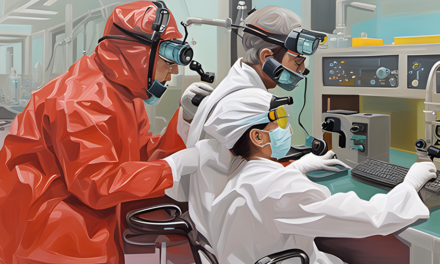More than three-quarters of UK frontline workers trust artificial intelligence and automation to enhance their safety at work, according to new research released to coincide with the World Day for Safety and Health at Work on 28 April 2025.
The findings, commissioned by workplace operations platform SafetyCulture, show that 76% of frontline employees view AI as a positive safety asset, despite broader concerns about job security.
The United Nations’ International Labour Organisation has made AI and digitalisation the focus of this year’s safety awareness day. In line with this, the study explored the attitudes of workers in construction, hospitality, logistics, manufacturing and retail – all sectors reliant on employees who must be physically present to carry out their roles.
The results suggest optimism about the role of technology in safety. Workers believe AI can help predict and prevent accidents (34%), identify risks that humans might overlook (32%) and take on tasks that are too dangerous for people (31%). Rather than reacting with fear or scepticism, most workers describe themselves as “curious” or “hopeful” about how these technologies might change their workplace.
Alex Brooks-Sykes, UK & Ireland lead at SafetyCulture, said: “There’s a lot for health and safety leaders to feel positive about here. They may assume the worst about workers’ attitudes to AI and automation being introduced in the workplace – but our findings show staff are optimistic about the safety benefits in particular.”
Concerns About Oversight and Reliability Remain
Despite the generally positive view, concerns persist. Over half of frontline workers (55%) worry about potential job losses due to automation. Another 38% are concerned about machines making decisions without human input, and 35% are uneasy about the possibility of glitches in technology causing safety hazards.
The research also found that while 58% of workers trust AI to provide insights or recommendations, they do not want it to make decisions without human oversight. These findings suggest a preference for a human-in-the-loop approach, where technology supports rather than replaces people.
Brooks-Sykes added: “Among the general positivity, there are some really actionable issues that workers raise. Many say they’d feel more comfortable about AI in the workplace with more training to use new technology. This is essential to dispel lingering reservations and showcase how workers can maximise its benefits. Reliability is another non-negotiable for workers who want tech that is going to deliver what it promises.”
Trust in Management and the Role of Communication
Another notable finding from the research is that frontline workers are more than twice as likely to trust their management to make the right decisions about adopting AI than to distrust them. However, there is still room for improvement when it comes to communication. Workers want clearer messaging about what new technologies are being introduced, how they work and what support will be available.
The study indicates that transparency and ongoing dialogue are critical when implementing AI systems, especially in sectors where safety is a key concern. SafetyCulture believes these results offer reassurance for businesses planning to scale up their AI and automation efforts.
SafetyCulture, headquartered in Australia, supports over 25,000 customers in the UK through its Manchester office. Its mobile-first platform enables teams to meet operational and safety standards, identify improvements and embed everyday learning.






